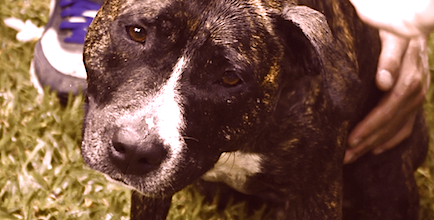Can Dogs Eat Cantaloupe? Everything You Need To Know.
Key Points: So, can dogs eat cantaloupe? Yes, dogs can have cantaloupe in moderation. Cantaloupe is a safe and healthy fruit for most dogs when given in small, bite-sized pieces. It can be a refreshing treat for your furry friend, especially on a hot day. Safety / Is Cantaloupe Good for Dogs Cantaloupe can have…

- Yes, dogs can eat cantaloupe in moderation—it’s a hydrating, low-calorie treat packed with vitamins A and C.
- Always remove seeds and rind to prevent choking or digestive issues, and serve in small, bite-sized pieces.
- While rare, some dogs may be allergic, so introduce it slowly and watch for any adverse reactions like itching or upset stomach.
So, can dogs eat cantaloupe? Yes, dogs can have cantaloupe in moderation. Cantaloupe is a safe and healthy fruit for most dogs when given in small, bite-sized pieces. It can be a refreshing treat for your furry friend, especially on a hot day.

Don’t leave your pet’s safety to chance
Sign up for Petful recall alerts today.

Safety / Is Cantaloupe Good for Dogs
Cantaloupe can have both positive and potentially negative aspects when it comes to feeding it to dogs. Here’s a list of why cantaloupe can be both good and not-so-good for dogs:
Why Cantaloupe Can Be Good for Dogs:
- Nutritional Value: Cantaloupe is a good source of vitamins and minerals, including vitamin A and vitamin C, which can contribute to your dog’s overall health.
- Hydration: Cantaloupe has a high water content, which can help keep your dog hydrated, especially during hot weather.
- Low in Calories: It’s a low-calorie fruit, making it a healthier treat option compared to some other fruits and treats.
- Low in Fat: Cantaloupe is low in fat, which can be beneficial for dogs that need to maintain or lose weight.
- Rich in Fiber: The fruit contains dietary fiber, which can support healthy digestion in dogs.
Why Cantaloupe May Not Be Good for Dogs:
- Choking Hazard: The seeds and tough rind of cantaloupe can be a choking hazard for dogs. Always remove these parts before offering cantaloupe to your pet.
- Digestive Upset: Feeding too much cantaloupe or introducing it suddenly can lead to digestive upset, including diarrhea, in some dogs. It should be given in moderation.
- Sugar Content: While cantaloupe is relatively low in sugar compared to some fruits, it still contains natural sugars. Dogs with diabetes or weight issues should consume it in limited amounts.
Portion/How much cantaloupe can dogs eat
The appropriate serving size of cantaloupe for your dog can vary depending on their size and dietary needs. It’s important to remember that cantaloupe should be given as an occasional treat rather than a significant part of their diet. Here’s a general guideline for serving sizes in terms of 1/2 inch cubes:
- Small dogs (up to 10 pounds or 4.5 kilograms): 1 to 2 half-inch cubes as an occasional treat, possibly cut into smaller pieces.
- Medium-sized dogs (10 to 30 pounds or 4.5 to 13.6 kilograms): 3 to 4 half-inch cubes as an occasional treat.
- Large dogs (30 to 60 pounds or 13.6 to 27.2 kilograms): 5 to 6 half-inch cubes as an occasional treat.
- Giant dogs (over 60 pounds or 27.2 kilograms): 7 to 8 half-inch cubes as an occasional treat.
Remember that these are just rough guidelines, and you should consider your dog’s individual size, age, activity level, and any dietary restrictions or sensitivities they may have. It’s always a good idea to consult with your veterinarian for personalized recommendations on treat portions for your specific dog. Additionally, start with a small amount to ensure your dog doesn’t have any adverse reactions before offering larger servings.
Nutritional benefits of Cantaloupe
Cantaloupe can offer several nutritional benefits for dogs when fed in moderation. Here are some of the nutritional advantages of feeding cantaloupe to dogs:
- Vitamin A: Cantaloupe is rich in vitamin A, which supports healthy vision, immune function, and skin health in dogs.
- Vitamin C: This fruit contains vitamin C, which is an antioxidant that can help protect cells from damage and promote overall immune health in dogs.
- Potassium: Cantaloupe is a good source of potassium, an essential mineral that helps maintain proper muscle and nerve function in dogs.
- Water Content: Cantaloupe has a high water content, which can contribute to hydration, especially on hot days.
- Dietary Fiber: The dietary fiber in cantaloupe can aid in digestion and help regulate bowel movements in dogs.
- Low in Calories and Fat: Cantaloupe is low in calories and fat, making it a healthy and low-risk treat option for dogs that need to maintain or lose weight.
- Natural Sugars: While it contains natural sugars, they are generally not a concern when cantaloupe is given in moderation, making it a healthier alternative to sugary or processed treats.
- Variety in Diet: Adding cantaloupe to your dog’s diet can provide variety in flavors and textures, which can be enjoyable for your pet.
Preparation tips/How to feed
When serving cantaloupe to your dog, it’s important to prepare it properly and follow some guidelines to ensure your dog’s safety and enjoyment. Here are some tips for serving cantaloupe to your dog:
- Choose ripe cantaloupe: Pick a ripe cantaloupe with a sweet aroma and a slightly soft texture. Avoid cantaloupes that are overripe or moldy.
- Wash it thoroughly: Before preparing the cantaloupe, wash it thoroughly to remove any dirt or contaminants from the surface.
- Remove seeds and rind: The seeds and tough rind of cantaloupe can be a choking hazard and may be difficult for your dog to digest. Cut the cantaloupe into small, bite-sized pieces, and be sure to remove all seeds and the outer rind.
- Cut into appropriate portions: Cut the cantaloupe into half-inch cubed pieces or smaller to make it easier for your dog to eat and reduce the risk of choking. For smaller dogs, you may want to consider even smaller pieces.
- Serve in moderation: Cantaloupe should be given to your dog as an occasional treat, not as a primary food source. Offer it in small quantities to avoid digestive upset.
- Monitor for allergies or sensitivities: When introducing cantaloupe to your dog for the first time, start with a small piece and observe for any adverse reactions, such as itching, hives, or gastrointestinal distress.
- Fresh and ripe: Serve fresh, ripe cantaloupe. Canned or preserved cantaloupe may contain added sugars or preservatives that are not suitable for dogs.
- Avoid additives: Do not add any seasonings, sugars, or other additives to the cantaloupe when serving it to your dog.
- Supervise while eating: Always supervise your dog while they are eating cantaloupe to ensure they don’t gulp it down too quickly or have any difficulty chewing or swallowing.
- Consult with your vet: If you have any concerns about feeding cantaloupe to your dog or if your dog has specific dietary needs or health issues, consult with your veterinarian for guidance on appropriate treats and portion sizes.
By following these tips and serving cantaloupe in a safe and controlled manner, you can offer your dog a healthy and enjoyable treat. Remember that individual dogs may have different tolerances and preferences, so it’s essential to tailor their treats accordingly.
Allergies
Yes, dogs can be allergic to cantaloupe, just as they can be allergic to various foods. While cantaloupe is not a common allergen for dogs, it’s still possible for individual dogs to have allergic reactions to it. Allergies can vary from one dog to another, and not all dogs will react the same way to the same food.
Common signs of food allergies or sensitivities in dogs, including potential cantaloupe allergies, may include:
- Skin Issues: Itching, scratching, hives, or redness on the skin.
- Gastrointestinal Distress: Vomiting, diarrhea, or an upset stomach.
- Ear Infections: Chronic ear infections may be linked to food allergies in some cases.
- Respiratory Problems: Sneezing, coughing, or wheezing, although this is less common with food allergies.
If you suspect that your dog is having an allergic reaction to cantaloupe or any other food, it’s essential to stop feeding them that food and consult with your veterinarian. Your vet can help determine the cause of the allergic reaction and recommend appropriate dietary changes or treatments.
When introducing new foods into your dog’s diet, including cantaloupe, it’s a good practice to start with a small amount to monitor for any adverse reactions. If you’re unsure about whether your dog has allergies or concerns about their diet, your veterinarian can provide guidance and perform allergy testing if necessary. Top of Form
Bottom of Form
Frequently Asked Questions (FAQ)
Can Dogs Eat Cantaloupe Rinds?
No, dogs should not eat cantaloupe rinds. Cantaloupe rinds are tough and can be difficult for dogs to digest. They may also pose a choking hazard, especially if a dog attempts to swallow a large piece of the rind.
When serving cantaloupe to your dog, it’s important to remove the seeds and the tough outer rind. Feeding your dog only the flesh of the cantaloupe ensures they can enjoy the fruit without any digestive or choking risks associated with the rind or seeds.
Can Dogs Eat Cantaloupe Seeds?
No, dogs should not eat cantaloupe seeds. Cantaloupe seeds can be a choking hazard, and they may also contain small amounts of cyanogenic compounds, which can potentially release cyanide when chewed or digested.
While the cyanide levels in cantaloupe seeds are generally low and unlikely to be toxic in small quantities, it’s best to err on the side of caution and remove all seeds from cantaloupe before feeding it to your dog.
Are any melons toxic to dogs?
No, most melons, including watermelon, cantaloupe, and honeydew, are safe for dogs in moderation. However, the seeds and rinds can pose choking hazards or cause digestive blockages, so they should always be removed before feeding.
Can cantaloupe upset a dog’s stomach?
Yes, while cantaloupe is generally safe, its high natural sugar and fiber content can cause digestive upset, such as diarrhea or gas, if eaten in excess. Feeding small, seedless pieces in moderation helps prevent stomach issues.
Recipes
You can get creative with how you offer cantaloupe to your dog by incorporating it into simple recipes or using it as a topping. Here are a few ideas:
- Frozen Cantaloupe Cubes: Cut cantaloupe into small cubes and freeze them. These frozen cantaloupe cubes can make a refreshing and hydrating summer treat for your dog. Be sure to remove the seeds and rind before freezing.
- Cantaloupe and Yogurt Smoothie: Blend fresh cantaloupe with plain, unsweetened yogurt to create a cantaloupe and yogurt smoothie. Freeze the mixture in ice cube trays for a cool and nutritious treat.
- Cantaloupe Dog Popsicles: Mix pureed cantaloupe with a small amount of water or low-sodium chicken broth. Pour the mixture into popsicle molds and freeze to create cantaloupe dog popsicles.
- Cantaloupe and Dog-Friendly Berries Salad: Combine small pieces of cantaloupe with dog-friendly berries like blueberries or strawberries for a colorful and tasty fruit salad.
- Cantaloupe Topping: Use diced cantaloupe as a topper for your dog’s regular kibble or wet food. It can add a sweet and healthy twist to their meal.
- Cantaloupe and Peanut Butter Bites: Spread a thin layer of dog-safe peanut butter on small cantaloupe cubes for a flavorful and nutritious snack.
Cantaloupe and Cheese: Some dogs enjoy a small piece of cantaloupe paired with a bit of dog-friendly cheese as a special treat.
Curious about what other foods dogs can eat? Check out these related articles below:







